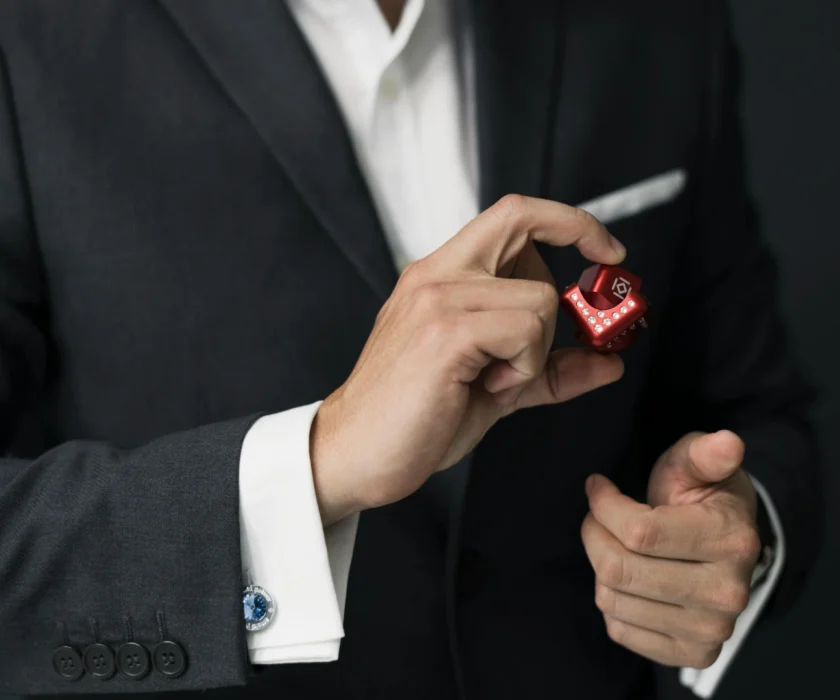Digital Marketing Tips for Luxury Brands
There is a false comparison of luxury as “luxury equals fashion.” Following this understanding, some mistakes are made in luxury brand management. This is natural because actions taken without knowledge and internalizing the concepts are never productive. In this article, you will read “how” focused explanations about luxury brand management and digital marketing recommendations for luxury brands.
I have shared my ideas on luxury brand management in many channels before. In short, I have sufficiently addressed the question “what is a luxury brand?” through many articles and interviews. Therefore, in this article, I will focus on “how to do luxury brand management?” rather than “what is a luxury brand?”. More precisely, I will answer the question “what is not a luxury brand?” rather than “what is a luxury brand?” and then close this “what” chapter.
What is not a luxury brand?
First, I can clearly and unequivocally say that the “Luxury equals fashion” comparison is wrong.
Luxury does not mean fashion. In other words, there is no rule that every luxury will become fashionable. This needs to be understood well first. It may be assumed that something trendy also falls into the luxury category.
However, there is no such situation. Let us start by changing these perceptions. One of the main reasons for these perceptions about luxury brands is a lack of knowledge and experience.
Incidentally, there is something even more severe in this regard. It is believed that fashion-oriented strategies can succeed in integrated marketing activities involving luxury brand management. However, to be successful in a subject, one must first understand, know and internalize the concepts in that field. Otherwise, there may be a lack of fiction while planning the strategy of the process. When the strategy is not well organized, the expected efficiency in management and reporting cannot be obtained.
In short, if you act this way, achieving the desired goal at the end of the work will not be possible.
In Conclusion, When Managing a Luxury Brand
So, without wasting time, let’s ask what all this will contribute to the brand when applied to the digital operations of the luxury brand.
First of all, sales and marketing are confused with each other in Turkey. Even though luxury brand management is in question, this confusion can sometimes occur. It is helpful to remind again. Sales are not insurmountable for a luxury brand if marketing is done right. Philip Kotler once said at a conference that marketing makes sales unnecessary. This statement means that if a good marketing campaign is done, sales will happen anyway.
There may be exceptions…
Meanwhile, there are some areas where competition is intense. Here, marketing is both costly and must be carried out relentlessly. In exceptional cases, don’t get caught up in feelings such as “we did marketing; why didn’t sales happen?” or “I spent much money on marketing, but I didn’t get what I expected in sales.” Because “doing good marketing” is not the only dynamic there.
Earlier, we said that implementing integrated marketing, to a great extent, brandies a company. Therefore, marketing alone is not enough in sectors with intense competition. In other words, integrated marketing must be implemented to a great extent. In other words, areas such as advertising, communication, media, new media, digital marketing, social media, corporate communication, PR, content marketing, etc., should be included in the business and marketing.
Footnote
Sometimes, when brands with products and services that appeal to the general consumer base launch a campaign, an unexpected new competitor may effectively enter the market while the campaign is ongoing. In short, there is stricter competition in markets that appeal to the general consumer. However, consumer behavior in the luxury consumption market is more apparent. In other words, the luxury consumer’s purpose, expectation, and desire can be predicted. In addition, competition in that market does not have a daily intensity. In short, competitors’ power and consumers’ behavior in the luxury brand market is known… In such a situation, it is illogical to focus on sales and neglect marketing entirely.
In summary, luxury brand management should focus on marketing. However, marketing should not be enough. As long as this basic rule is applied, you don’t need to worry about sales in the luxury brand market.
Luxury brand management should stop worrying about sales and focus on strategic and unique marketing activities. Digital, in particular, is perfect for different actions. In other words, luxury brands can make more original, permanent, and strategic moves in digital. But for this, luxury brands must first get rid of sales anxiety.
In short, luxury brands should not be concerned about gaining a market share. It is enough for the luxury brand to be seen by its audience. The rest will come anyway.
To summarize, if a brand that produces luxury-oriented services/goods can offer what it promises to the consumer, it does not need to worry about sales and promotion. Although some brand consultants make shallow suggestions such as “luxury brands should be mysterious” and “luxury brands should exhibit a tough seller image while determining strategy,” I strongly disagree with them.
The consumer always makes the smartest choice in the shopping cycle. Therefore, brands should focus on engaging with consumers instead of looking down on them because a brand must communicate with its audience.
As a Conclusion
As a result, we are in an age where digital marketing is essential. Every brand, whether luxury or not, has to communicate with its audience. One of the marketing purposes is communication, in other words, interaction. This also applies to digital. And naturally, luxury brands have to focus on interaction. So interaction is a very, very important parameter for a brand.



